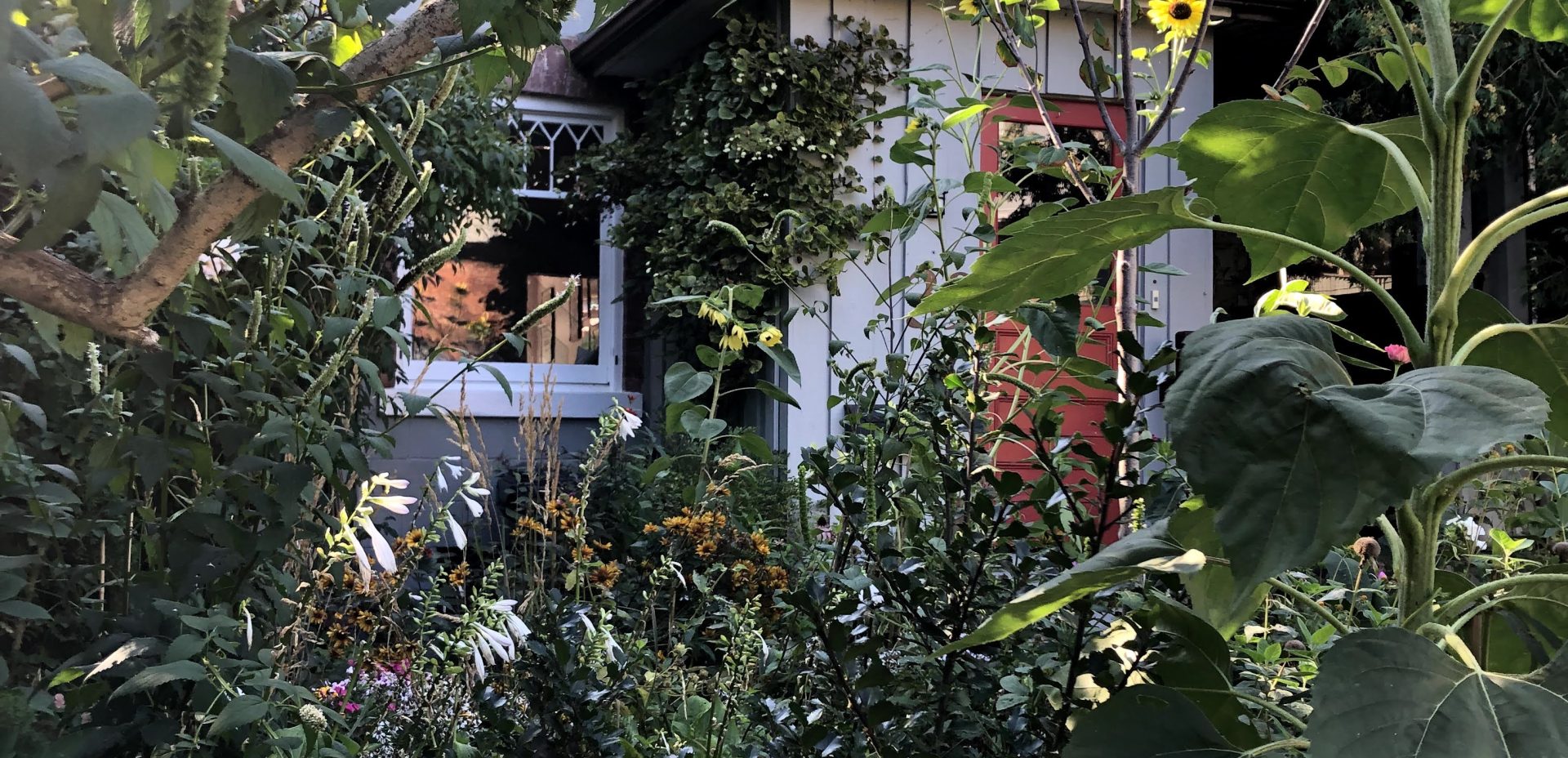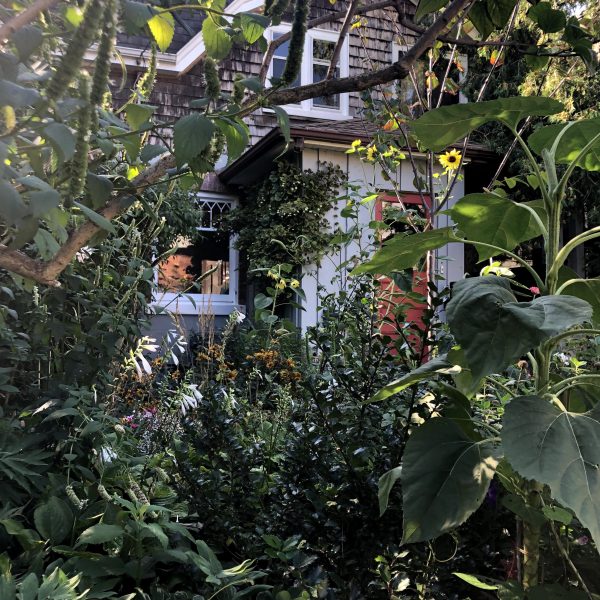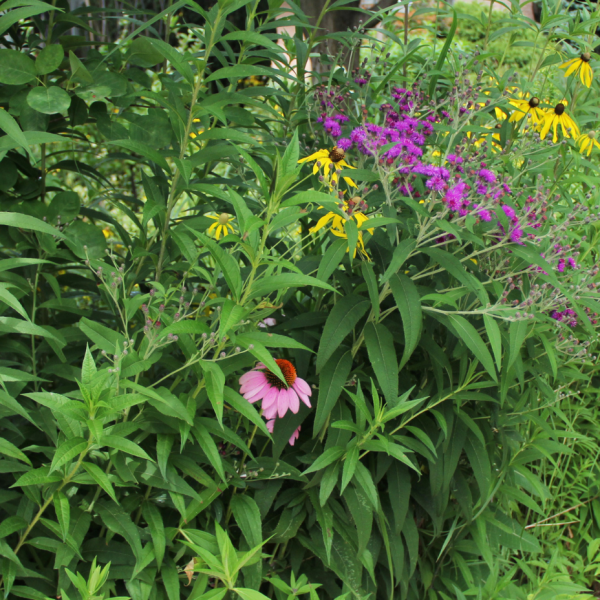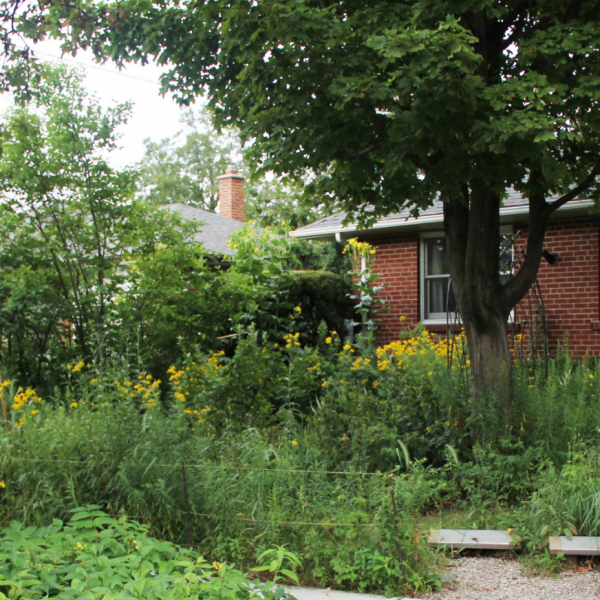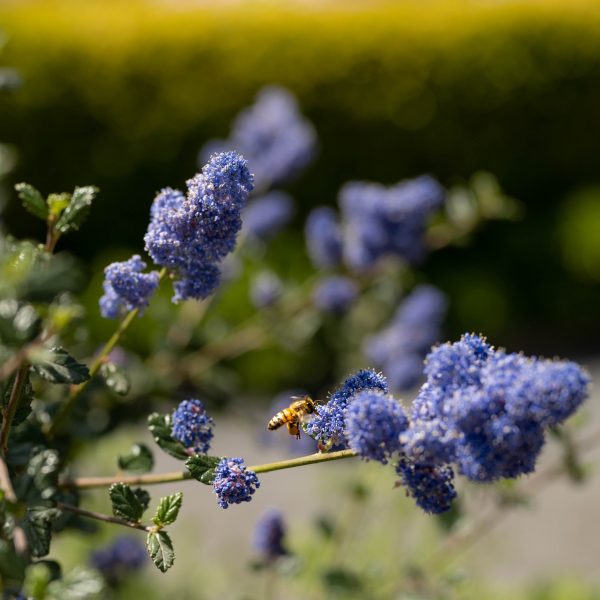Urban Biodiversity:
Cultivating Support through Municipal Codes
Private yards provide an opportunity to bring ecologically rich and biodiverse habitats into the urban fabric of cities. Local governments are increasingly promoting ecological goals of naturalized ecosystems, yet many of these same local governments’ by-laws and code requirements continue to prohibit and create barriers to the cultivation of plants other than clipped turf grass.
Focusing on the 15 North American partner cities of the Biophilic Cities Network, this Studio team investigated barriers to biodiversity enforced in each city’s policy. They also consolidated best practices and case studies on progressive codes, educational initiatives, and incentive programs to encourage biodiversity.
The team activated their research by developing a Toolkit that guides and educates local governments on how they can transform their municipal codes and by-laws to cultivate urban biodiversity, rather than prevent it. The Toolkit also includes best examples of innovative programs listed in the report to further encourage biodiversity in private yards in a user-friendly format.
This report and toolkit were developed by a team of six Master’s of Urban Development Students from Toronto Metropolitan University: Alexander Adams, Anne Benaroya, Julia Bevacqua, Lana Marcy, Danielle Liao, Cameron McCoy.
The project was supervised by Professor Nina-Marie Lister, the Graduate Director of the School of Urban and Regional Planning at Toronto Metropolitan University and Director of the Ecological Design Lab.
The team was supported by Tim Beatley, JD Brown, Lorraine Johnson, David Donnelly, Peter Brastow and Julia Afrika.
Citation: Adams, A., Benaroya, A., Bevacqua, J., Marcy, L., Liao, D., & McCoy, C. (2021, April). Urban Biodiversity: Cultivating Support through Municipal Codes. Ecological Design Lab. https://ecologicaldesignlab.ca/site/uploads/2022/03/Urban-Biodiversity-Cultivating-Support-Through-Municipal-Codes-March-7-Update-2.pdf
